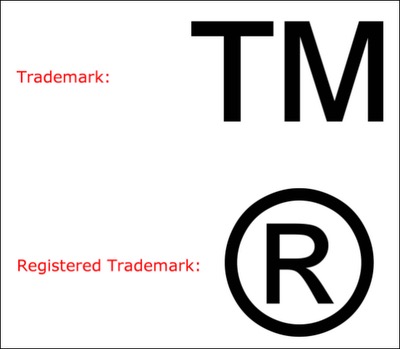Choosing the Right Name for Your Business
 Choosing the right name for your business is often one of the over-thought parts of starting a business. I often run into entrepreneurs that have spent significant amounts of time settling on the perfect name, without ever considering whether or not they should incorporate or not.
Choosing the right name for your business is often one of the over-thought parts of starting a business. I often run into entrepreneurs that have spent significant amounts of time settling on the perfect name, without ever considering whether or not they should incorporate or not.
Admittedly, deciding on what to call your business can be an important factor, but it is certainly not one of the most critical legal decisions you'll face. That doesn't mean that you should take it lightly, however.
Name Strategy
 Naming strategy comes in one of two forms: short-term and long-term. If you are looking to make maximum impact in the shortest period of time, I recommend choosing a descriptive name. On the other hand, if you want to build a long-term brand, picking an arbitrary name will offer better returns in the long-run. Descriptive and Arbitrary have specific legal definitions, so I will use them in context here.
Naming strategy comes in one of two forms: short-term and long-term. If you are looking to make maximum impact in the shortest period of time, I recommend choosing a descriptive name. On the other hand, if you want to build a long-term brand, picking an arbitrary name will offer better returns in the long-run. Descriptive and Arbitrary have specific legal definitions, so I will use them in context here.
Descriptive Names
Descriptive names are business and product names that directly describe the product or service that the business sells or conducts. The biggest benefit of a descriptive name is that it immediately tells you what the business does, which is great if you're trying to build a business quickly. For instance, "Ed's Lawn Mower Sales" will immediately tell you who owns the company and what they sell because the name itself describes the goods and services of the company.
The downside to choosing a descriptive name is that you will get no legal protection for your name. If another Ed opened up a lawn mower shop just down the road, and he too called his company "Ed's Lawn Mower Sales," it is very unlikely that any court will prevent him from using his own name and a description of his business in his name.
Arbitrary Names
Arbitrary names are names that have nothing to do with the business, product, or service being offered. I usually cite pharmaceutical companies as being effective at adopting and implementing arbitrary names for their products. After all, Xanax tells you nothing about what the product does. This also creates a problem, because "Xanax" gives you no idea what the product does, so picking an arbitrary name is a double-edged sword.
The big benefit of picking an arbitrary name is that you immediately receive a basic level of legal protection in the name just because you used it. Because the name is so "fanciful," there would be no reason any competitor would use except for the sole purpose of riding off your coat tails. However, because the name is so arbitrary, you will need to build some value behind the name before it becomes recognized in the marketplace. This makes an arbitrary name more suited for a long-term business strategy.
The Law of Names
What you call your business and its products and services is protected under trademark law. Many people wrongfully assume that their names are protected by copyright law, and this is wrong. By law, a trademark is defined in 15 U. S. C. § 1127 as including "any word, name, symbol, or device or any combination thereof" used by any person "to identify and distinguish his or her goods, including a unique product, from those manufactured or sold by others and to indicate the source of the goods, even if that source is unknown." Practically, this covers a business's name, logo, slogan, or product names. It also extends to protect less common trademarks such as slogans, jingles, color schemes, packaging, designs, store layouts, and even scents. If you consistently use some device to identify your business or its products, chances are that you can receive some legal protection for it.
It may be helpful to discuss with a qualified trademark attorney about several different options to determine which might be the best for your business.
Trademark Searching
Once you decide on which trademarks you want to use, you have a duty to conduct some research to see if anyone is using anything similar. Trademark law is a strict liability law, which means that you do not have to have actual knowledge that you're violating the law to break the law. In other words, if you pick a trademark the might cause the likelihood for confusion with another trademark, you can be found in violation of their trademark, even if you never knew about their use of that trademark. The law is explicitly written to protect prior trademark holders and the consumer public, and not someone that thinks they can stick their head in the sand and hope for the best.
Most people then conduct a trademark search. Trademark attorneys like myself do this all the time. We search through multiple databases, including the United States Patent and Trademarks Office's trademark filings database, state trademark registration databases through each state's secretary of state, and a common law search using a number of advanced business directories. Simply Googling your name won't do the job, so it's advisable to let the experts handle it.
Registering Protection
 Trademarks are protected by common law and by statute. You get a certain level of protection for using a protectable trademark just because you are using it. However, you can get additional protections from registering your trademark, so it is generally best to take the extra step to register your trademarks. Each state maintains their own trademark registration system, as does the United States Patent and Trademark Office. There is even a system for registering your trademarks with other countries through the Madrid Protocol. While state protections are relatively inexpensive ($35 filing fee in Alabama), they only protect your trademarks within the state lines, leaving you potentially unprotected only a couple of hours away in another state. The USPTO's filing fee is more expensive ($225), but is significantly cheaper than trying to file in even a dozen states, and provides protection nationwide for a fraction of the cost.
Trademarks are protected by common law and by statute. You get a certain level of protection for using a protectable trademark just because you are using it. However, you can get additional protections from registering your trademark, so it is generally best to take the extra step to register your trademarks. Each state maintains their own trademark registration system, as does the United States Patent and Trademark Office. There is even a system for registering your trademarks with other countries through the Madrid Protocol. While state protections are relatively inexpensive ($35 filing fee in Alabama), they only protect your trademarks within the state lines, leaving you potentially unprotected only a couple of hours away in another state. The USPTO's filing fee is more expensive ($225), but is significantly cheaper than trying to file in even a dozen states, and provides protection nationwide for a fraction of the cost.
The big difference between registering at the state and national level is the amount of scrutiny you'll get. States generally rubber-stamp their registrations, meaning that they don't review the applications and will generally allow anything to be registered. This does not give much significance to a state trademark registration. However, the USPTO will assign an examining attorney to scrutinize your application during an Office Action, and many applications are rejected. Even then, you might be forced to significantly alter or retract your claims to be able to gain registration.
I often see poorly-executed trademark applications drafted by lay people, and even many by attorneys without trademark experience, that are summarily denied registration. Therefore, don't skimp on hiring a competent trademark attorney. If you think it's expensive to hire a professional, wait and see how expensive it is to have your application dismissed and have to overcome a prior rejection on your next attempt.
Enforcing Your Rights
Once you register your trademark, you need to monitor unauthorized use of your trademark. At the least, you should have some system to alert you if your trademark is used so that you can screen for unauthorized use. Trademark attorneys also have systems in place to monitor for infringement that are more comprehensive than something as simple as a Google Alert.
If an infringer does pop up, it's critical to take action. The longer you wait might create problems for enforcement through legal principles such as waiver and laches. Contact a competent trademark attorney quickly should you learn of any infringement.
Adding Value to Your Name
While you might have started with just a name, the needs of your company will require that your brand grow as well. You may want to add a logo. You might find the benefit in coordinating your color scheme. You might then want to standardize and differentiate your packaging. Each of these strategies can add value to your business in different ways. Just as I discussed above, each of these branding techniques can also trigger trademark law issues, so its important to work hand-in-hand with not only a branding specialist, but also a trademark attorney, before committing to them and rolling them out.
Bottom Line
While picking a name is important, it is a relatively small matter. People won't buy your product because of its name. They are looking for more than that. However, if you're too cavalier with your name, you might run into legal problems, so it is important to speak with a trademark lawyer to properly determine your legal rights and responsibilities before settling on that "perfect" name. You may also want to invest in the expertise of a branding specialist who has experience in crafting unique names that are not only legally protectable, but also relevant to your business.